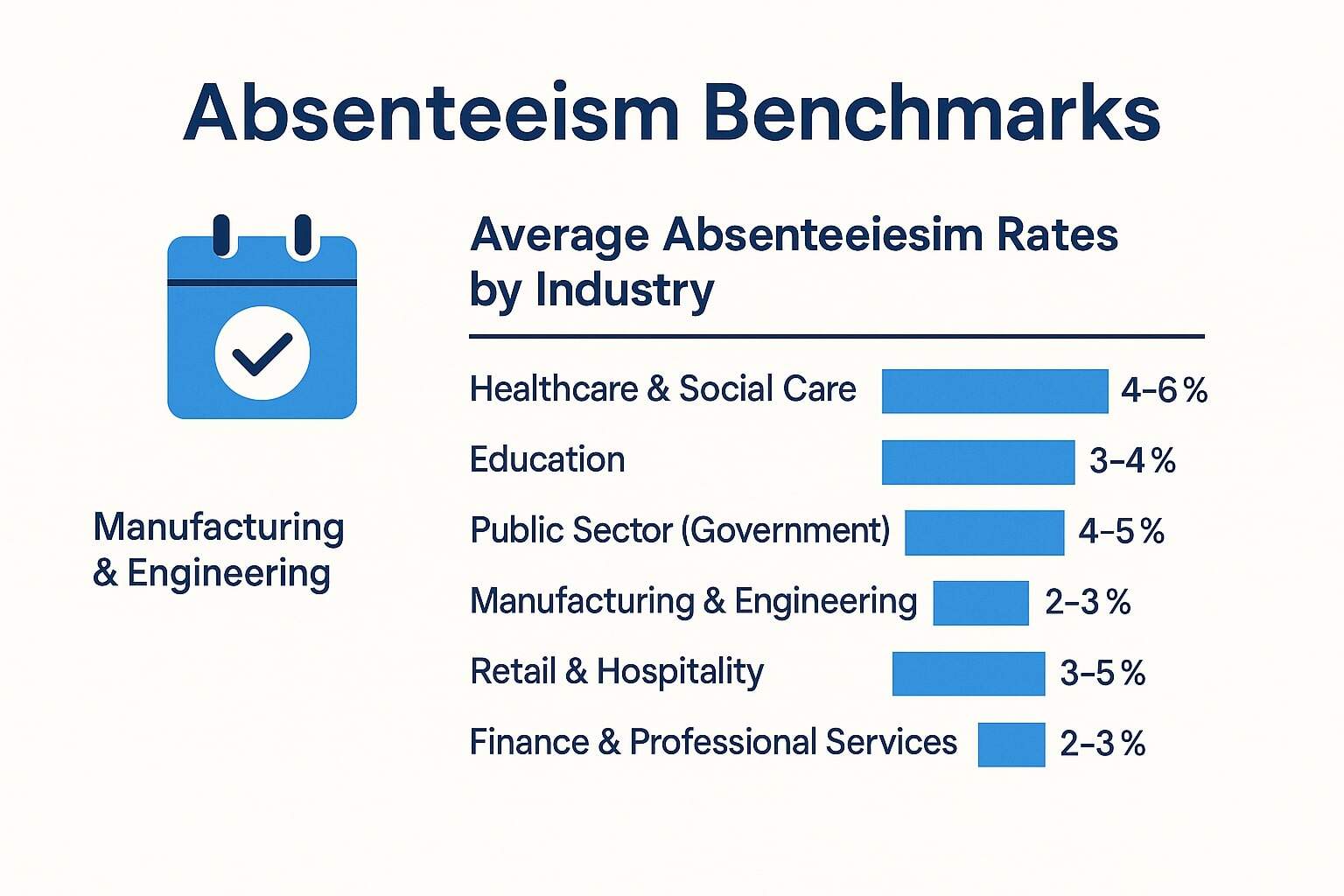The benefits of better sick leave management

Sick days, due to their unavoidable and unpredictable nature, are a frequent challenge for many companies. Fortunately, however, their impact can be minimized with effective sick leave management, which helps mitigate employee absenteeism and its impact on the organization. This approach also offers organizations an array of other benefits:
Introduction to Absence Management
Absence management is a cornerstone of effective human resources (HR) practices, focusing on managing and monitoring employee absences, including sickness absences, to minimize their impact on the organization. A well-structured absence management policy is essential, as it outlines the procedures for reporting and managing absences, including sick leave, and provides support for employees with ongoing health issues. By implementing a robust absence management system, employers can streamline their absence management processes, reduce administrative burdens, and make data-driven decisions to enhance employee health and wellbeing. Effective absence management not only helps reduce absenteeism but also fosters a healthier, more productive work environment, ultimately benefiting both employees and the organization.
Employees know where they stand
An integral part of sick day management is having a clear policy on how sick leave is managed and how time off from illness affects staff’s annual leave allowance. Namely, if they receive paid sick leave and how many days of sick leave employees are entitled to before it eats into their annual leave or goes unpaid. This, in turn, affects how likely staff are to come into work if they fall ill, which, as discussed below, has a few knock-on effects.
Implementing an Absence Management System
Implementing an absence management system can revolutionize how employers manage absences, making the process more efficient and effective. Such a system automates tasks like leave requests, approvals, and tracking, significantly reducing the risk of human error and freeing up HR teams to focus on strategic initiatives. These systems can significantly reduce the time taken to process leave requests from hours to minutes. When choosing an absence management system, it’s crucial to consider factors like ease of use, customization options, and integration capabilities with existing HR systems. A top-notch absence management system should also offer analytics and insights, enabling employers to identify patterns and trends in employee absences. This proactive approach allows employers to take steps to reduce absenteeism and improve employee wellbeing. By adopting an absence management system, companies can enhance their absence management processes, cut costs associated with absenteeism, and cultivate a healthy, productive work environment.
Increased productivity
Effective sick leave management will result in people only coming into the office when they’re fit to work and can perform optimally. In contrast, ineffective management results in staff coming into work when they’re still ill, which compromises their ability to do their job. Also, worse still, they run the risk of passing it onto their colleagues, amplifying the consequences to the company further.
Effective management of minor illnesses, such as colds and flu, can prevent the spread of illness and maintain productivity. Employee Assistance Programs (EAPs) can provide access to confidential support for employees facing issues that may affect their work, such as stress or mental health challenges.
Additionally, a clear sick day policy allows for the possibility of remote working, so staff can continue to do their jobs from home. This lets them retain some of their productivity without the discomfort of coming to work or the risk of spreading a bug to others. Instead, they can come back when they’ve regained their strength and recharged their batteries.
Monitoring Employee Attendance
Monitoring employee attendance is a vital component of effective absence management. Keeping accurate records of employee attendance, including absences, is essential for identifying patterns and trends. Employers are responsible for maintaining accurate records of sick leave and related communications. This data-driven approach enables employers to take proactive measures to reduce absenteeism, boost employee wellbeing, and maintain a healthy, productive work environment. Various tools and techniques can be employed to monitor attendance, such as absence management software, spreadsheets, and manual records. Regular monitoring and analysis of attendance data help employers pinpoint areas for improvement, develop targeted interventions, and assess the effectiveness of their absence management strategies. By diligently monitoring employee attendance, employers can mitigate the risk of absenteeism, enhance employee engagement, and foster a positive, supportive workplace culture.
Improved employee wellbeing
As employees feel more valued and supported when they know they can take sick leave without negative repercussions, smart sick day management will result in greater staff morale. Simplifying the sick leave process encourages employees to take time off when needed. They’ll feel the company values their wellbeing and has their best interests at heart, making them more loyal as a result.
Supporting Employee Return to Work
Supporting employees in their return to work after a period of absence is crucial for maintaining a healthy and productive work environment. Employers should establish a clear and comprehensive return-to-work policy that outlines the procedures for assisting employees in their transition back to work. This policy should include information on reasonable adjustments, flexible working arrangements, and other forms of support to facilitate a smooth return. Conducting a return-to-work interview is a best practice after an employee’s absence. Additionally, employers should provide training and guidance to line managers on how to support returning employees, including conducting return-to-work interviews and offering ongoing support and monitoring. By effectively supporting employees in their return to work, employers can reduce the risk of long-term sickness absence, enhance employee wellbeing, and promote a positive, supportive workplace culture.
Save money
Ultimately, smart sick leave management saves companies money: If employees can work remotely, and indicates they’re doing so in a leave management system, your company saves on sick pay and prevents losing income through lost productivity – which quickly compounds over time.
Many employers implement their own company sick pay schemes to offer enhanced benefits beyond the statutory sick pay. These employer-specific schemes can provide better financial support and longer durations of pay for employees on sick leave, reflecting the employers’ discretion and flexibility in their policies.
Also, over the long term, happier employees will stay with the company longer, which saves on the cost on recruiting and subsequently training new ones. Better still, they’ll develop their skills the longer they stay, adding more value to the company and contributing to its growth. This is far better than an alternative scenario in which they seek work elsewhere, with their talents benefitting the competition.



